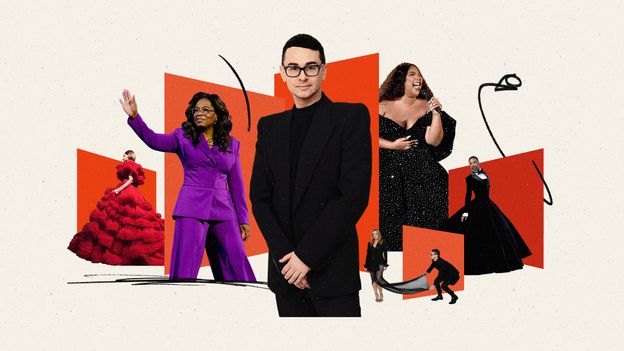 Klawe Rzeczy/ BBC
Klawe Rzeczy/ BBCAs New York fashion week kicks off, US designer Christian Siriano talks reality TV, his celebrity clients – and proving the doubters wrong.
“If you want to work in fashion, you have to be completely obsessed with it,” Christian Siriano tells the BBC.
Clearly, Siriano’s obsession has paid off. He is just 38 years old, and already his CV is impressive: founder of a profitable US fashion label; wardrobe-builder for stars like Celine Dion, Michelle Obama and Zendaya; co-host of Project Runway, one of US TV’s longest-running reality competitions, which he won in 2007. “I work really, really hard,” he says.
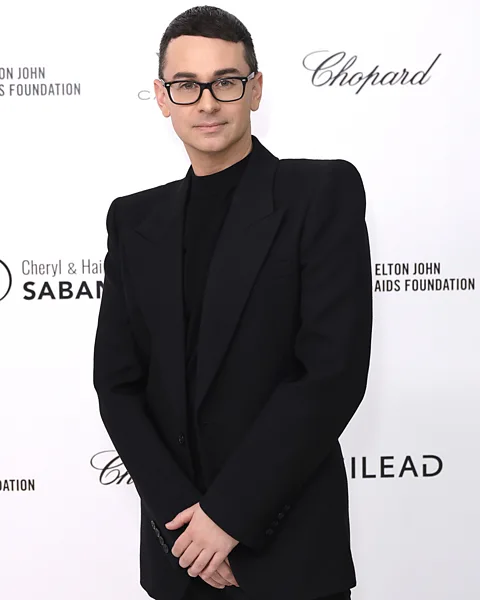 Getty Images
Getty ImagesSiriano’s work also includes body advocacy. He’s famously created clothes for plus-size people since his very first runway collection in 2008, and insisted that luxury retailers like Moda Operandi and Neiman Marcus carry his famously frothy evening gowns in sizes up to a UK 28. In 2016, comedian Leslie Jones complained on social media that no designer would dress her larger, taller body for the premiere of Ghostbusters. Siriano created her a form-fitting, off-the-shoulder black dress that became a viral hit. He has gone on to dress other curvy celebrities, including Oscar nominee Danielle Brooks, Grammy winner Lizzo and supermodel Ashley Graham.
Siriano realised early on that “there shouldn’t be a separation” between what larger women and smaller ones are able to buy. “My mom is curvy. My sister is tiny. They both wanted the same dresses. Chic is chic, right?” he says. His instinct was proven right when celebrity stylists started to arrive at his studio asking for dresses for movie-star clients. “But the runway references they brought were often for the runway gowns on plus-size models,” he says. “Women with flawless style know it doesn’t matter that their client was a size zero and the model was a size 14. Because it doesn‘t matter. A great dress is a great dress!”
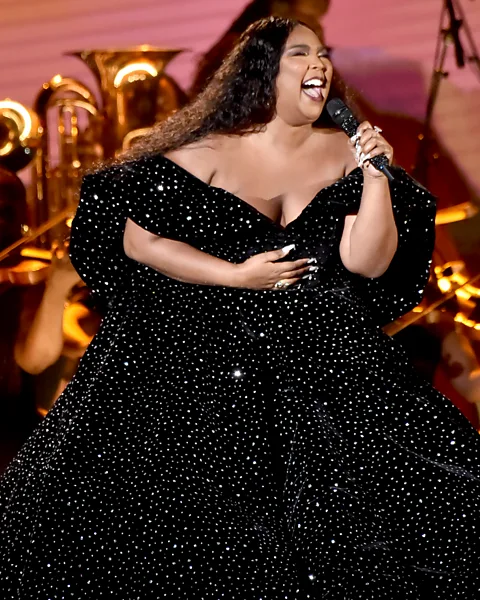 Getty Images
Getty ImagesStill, the department stores didn’t order plus-size evening gowns in the same quantities that they’d order smaller sizes. Siriano would receive emails from women who had tried to buy his signature tulle pouf skirts and strapless silk frocks, but couldn’t find their size in shops. “It felt awful to let women down like that,” said Siriano. So about five years ago, he made the decision to bring retail sales back to his Manhattan studio, where he could make the sizes that his shoppers wanted, instead of the ones department stores deemed “appropriate” for their clientele.
The decision proved canny. “There was this idea that women who are curvy don’t have a lot of money to spend on luxury fashion,” says the designer, whose evening gowns can retail for more than $12,000 (£9,130). “Listen, I have made hundreds of thousands of dollars proving that idea wrong!”
Power dressing
He also has fans in women like Oprah Winfrey, who recently wore a custom $2,200 (£1,674) silk crepe Siriano suit to the Democratic National Convention in her hometown of Chicago. “I made it in two days,” says the designer, who has a mannequin with Oprah’s exact measurements in his studio to help fulfil rush orders. (It’s not just Winfrey – there are several “VIP mannequins” in the space.) Some designers wouldn’t publicise their affiliations with a particular political party. Siriano – who famously made First Lady Dr Jill Biden’s “Vote” dress during her campaign trail appearance in 2020 – is excited about it. “I’ve always been kind of a political designer,” he says. “People can really see through you when you’re not authentic. It doesn’t work. And authentic, to me, is championing certain people because of their causes.”
After changing the industry’s ideas around luxury, size and political muscle, Siriano is now considering some changes himself. “Making clothes is the best part of my job,” he says. “Running a fashion empire sometimes takes away from being an artist. And that’s the part I never want to give up. I can’t. It’s who I am. So I’m trying to make more time to design a Broadway show, to do more ballet costumes, to challenge the artistic side of me as well.”
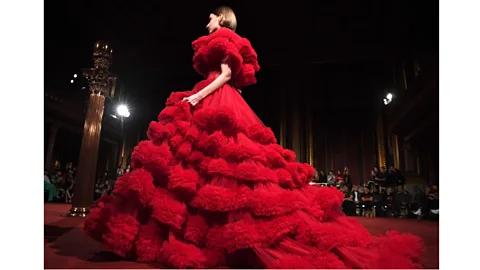 Getty Images
Getty ImagesAnd like all artists, Siriano has his detractors. He’s sometimes chastised on social media for using sumptuous poufs of fabric, which some critics find dreamy but not always modern. Siriano’s natural flamboyance is sometimes mocked, too, as if being an outsize personality, on television as well as in real life, precludes artistic merit. “I did take it personally when I was younger,” he says, about the occasional online pile-ons. “But mostly, I was just confused. I was 25 years old, and I ran my own business. Nobody handed it to me. I worked really hard, I made clothes, people bought them. What made people so mad about that? Because I was on a reality TV show?”
THE CHANGING ROOM
The Changing Room is column from the BBC that spotlights the fashion and style innovators on the frontlines of a progressive evolution.
Today, of course, it’s okay – even cool – to be on reality TV. Many of fashion’s most influential faces – Gigi Hadid, Jenna Lyons, Cardi B, Emma Stone and Emily Weiss, founder of cosmetics company Glossier – appeared on primetime reality shows before they emerged as style icons. Designer (and early Siriano client) Victoria Beckham has even commissioned her own Netflix reality show to illustrate the inner workings of her design house and beauty label.
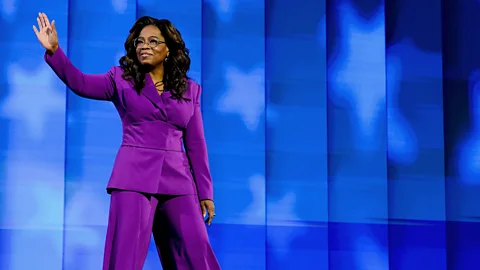 Getty Images
Getty Images“Obviously, having a big personality in fashion really helped me grow the brand,” Siriano says. “It’s also just who I am – and I can’t change that. I won’t,” he adds. “But ultimately, I want everything to always be about the clothes in the end. People have to want to wear my clothes. That was my first goal and it’s my end goal, too. It’s not about me. It’s about: ‘do you love how you feel in this dress?’ And that’s how I know I’ve done my job.”
The designer’s phone dings, and he realises he has to go. He’s on deadline for a mysterious celebrity project. “I’m probably going to be sleeping in the studio.” For Siriano, that’s how it goes in the fashion business. You get to live the dream – but you also have to pull all-nighters and sleep on the fabric.
link

